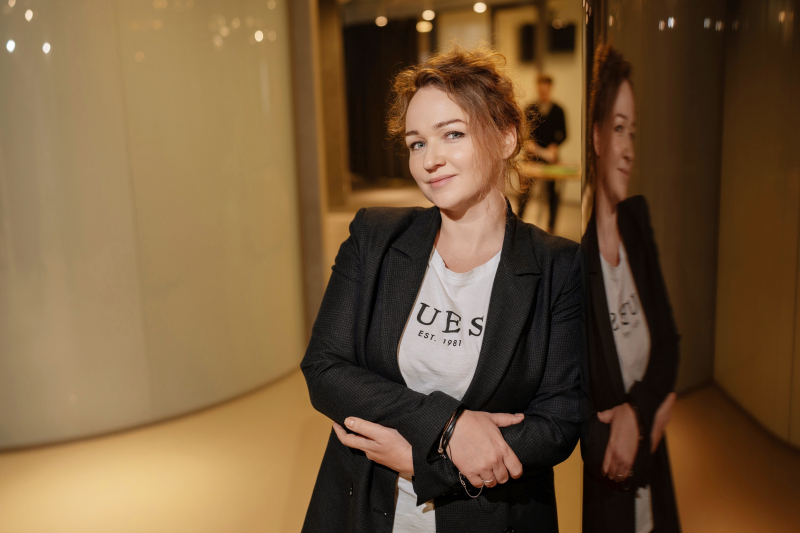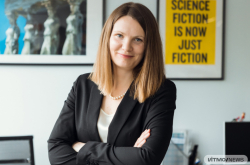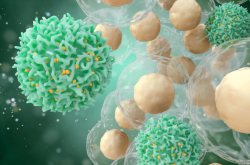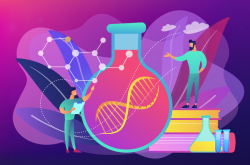About Olga:
Olga Puchkova is a radiologist with 20 years worth of experience. She heads the Mammology Center at Ilyinskaya Hospital and acts as an expert at the Research and Practical Center for Diagnostics and Telemedicine of Moscow’s Health Department, as well as a consultant at ARNA Genomics and Sberbank’s medical AI development team. Breast cancer is one of Olga’s research interests. In collaboration with ITMO’s Center for Science Communication, Olga Puchkova studies methods for cancer diagnostics in Russia within a project aiming to evaluate the efficiency of these methods.
Surveys show that only a third of Russian women take part in regular screenings, including those for breast cancer. Why is this approach ineffective and what can be done to improve it?
Ideally, screenings should be introduced as a national initiative run by a special governmental structure reporting exclusively to the Ministry of Health. This structure will be responsible for inviting women for examinations and then referring them for treatment in case a pathology is discovered. Such programs are operating in very few countries: Sweden, Finland, Germany, the Netherlands, Denmark, and Slovenia.
Another important factor is the number of qualified professionals. In the countries with efficient screening mechanisms, clinicians undergo training every six month and confirm their knowledge.
The third issue to tackle is the absence of a single information and digital environment. In order to evaluate the efficiency of a screening, it’s important to track every patient, monitor their data, and collect statistics. This issue is the easiest one to address, it can be solved in six months. Training clinicians and creating a governmental structure, on the other hand, would require a lot of time and effort.
Olga Puchkova giving a talk at ITMO. Photo by Alexey Goyan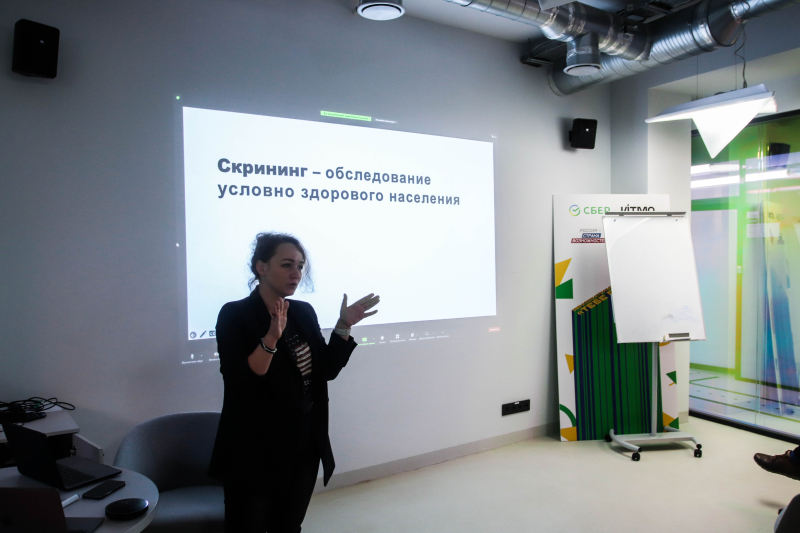
Today, there is a lot of talk about AI in medicine. Could algorithms be used to solve these problems at least partially?
For mammography, employing AI is not about hype, it’s an actual demand. Breast cancer can be approached in terms of lowering its mortality: the earlier it is detected, the lower the mortality risk.
AI can be setup so that it identifies all cases without a pathology. There is a small number of false positive results in this case, but all scans will be additionally assessed by a medical specialist. Without the need for routine activities, clinicians will get more time to communicate with their patients – something they don’t often have enough time for now.
Together with experts from ITMO, you want to evaluate the efficiency of screening methods. Why did you decide to do it here?
The university has the motivation and means to develop technologies that will change the medicine towards something more convenient for patients and clinicians.
At ITMO, I meet people inspired by their ideas, by the desire to do good and change lives. As a doctor and a researcher, I see this as a sign that all will be well and we will be able to change the current screening situation for the better, that we are on our way to the bright future we will create together.
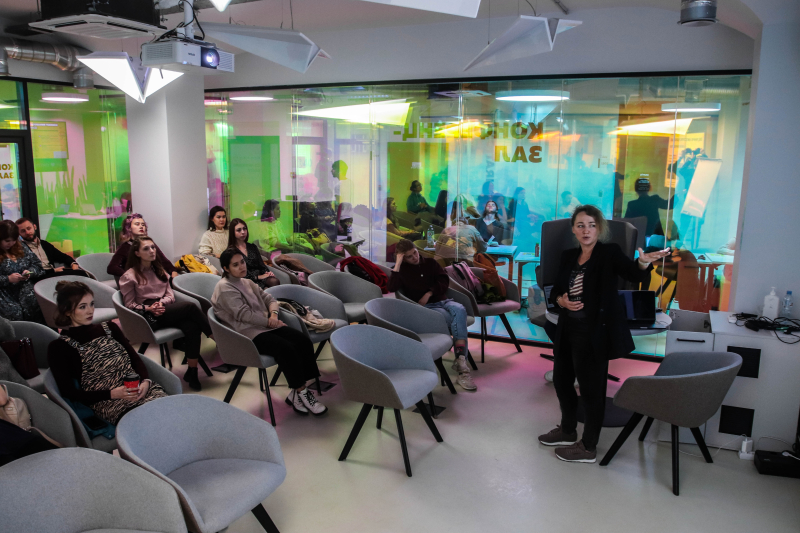
Olga Puchkova giving a talk at ITMO. Photo by Alexey Goyan
Some research groups at ITMO, including student researchers, are already working on AI applications in medicine – for instance, algorithms able to detect artifacts on medical scans. Which solutions do you think are most wanted on the market now?
We are always in need of good-quality research, and AI could be used to help conduct them by indicating faults during the procedure and recommending another run of the test. This will lower the emotional pressure on patients, as they won’t be required to attend the test once more.
Students are surely capable of providing the necessary technological solutions, however for medical professionals, it is important that the algorithm has the necessary theoretical foundations and it has been tested in various environments and on different patient groups.
It would be wonderful if developers of medical AI systems approached this task from a research-based point of view. Medical specialists communicate using numbers and we want to know if this system is truly functional. How was this data acquired and in which cases? What are the possible flaws, benefits, and drawbacks?
So, are you saying that today’s market lacks not only developers but also public health experts who will assist in research?
Absolutely, this is a huge problem indeed. Specialists who can design studies correctly are rare, though the demand for them is ever-growing.
The market also needs people who can apply modern methods when working with data. Although Excel is still a way to go, there are many other methods that can help specialists turn manual processes into automated workflows.
Read also:
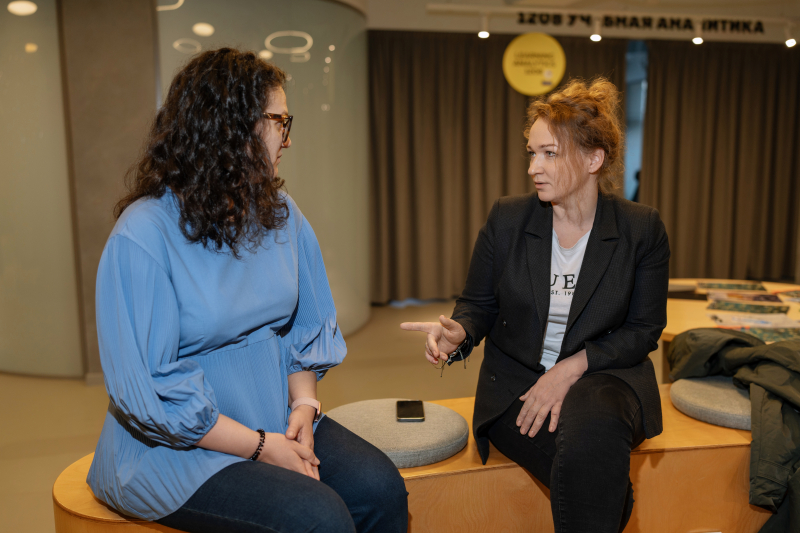
Olga Puchkova (right). Photo by Nikita Seliverstov / Megabyte Media
What other skills should such specialists possess, apart from being excellent researchers?
They need to understand how models are produced. That’s what the market is looking for nowadays. It's not enough to be a doctor, you need to have other skills, too. Therefore, many young doctors today get a major in data science or other fields so they can better communicate with developers who produce medical solutions.
From today’s point of view, the integration of IT and medicine has a bit of a cyberpunk feel to it. How do you think medical and IT specialists will interact with each other in the future?
Imagine a scale from 1 to 10 where 1 is what we have now and 10 is what we might have in the future. On the one hand, we have predictive models that can predict the likelihood of developing cancer over several years by analyzing the patient’s records, from their test results to medical conclusions. A medical specialist can’t physically do the same during an appointment. It’s simply impossible for a human to scan such amounts of data in 20 minutes, whereas AI can do this job in an instant, calculating possible conditions, as well as risks of diseases. Such models are already adopted at a number of clinics, including state-funded ones.
On the other hand is a wide range of possible AI applications across various fields. For one, the technology can be of service when developing molecules for medications, as it is already practiced by the company Moderna. There is also preventive medicine. For instance, the US established the National Microbiome Initiative in 2017 to, among many other things, study correlations between the composition of the microbiome and various human diseases. Another study underway is associated with the exposome – basically, everything that affects humans, be it viruses, fungi, bacteria, air pollutants, and so forth. If we examine all these factors plus medical records, we will be able to predict the onset of diseases in each individual case.
AI can also come in useful in personalized drug therapy. The way I see it, in the future before prescribing medications, specialists will first analyze human tissue, identify a target (say, an altered receptor) and then use an algorithm to select individualized drug combinations for better results for a given patient. New pharmaceuticals will be tested and modeled digitally. I believe it’ll become a routine procedure in 20 years.
Read also:
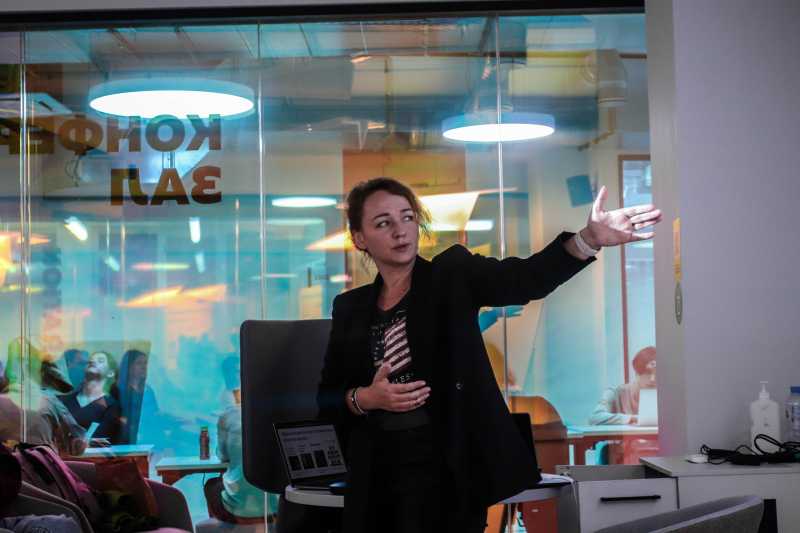
Olga Puchkova giving a talk at ITMO. Photo by Alexey Goyan
What may come in the way?
Resistance is an integral phase of technology adoption. Prof. Robert Sapolsky once said that the living world is built to prevent change from happening: everything in the world, from flowers to humans, works for stability. After all, changes (mutations, for instance) can either advance or completely destroy a species.
Humans are no expedition. We don’t typically get used to changes in a second. However, new technologies don’t come from nowhere, they are responses to people’s needs, which sometimes can be unconscious. AI is seeping into our everyday life, and we can just enjoy the ride.
Do you think science communicators can change the game? Are they truly in demand?
They can and they are in great demand. The amount of data we consume per second is insane and it is oftentimes fake. It’s great that it’s unfiltered, yet because of that it can harm people – that is something I experience a lot as a doctor.
Science communicators, on the other hand, can translate to a person what scientists are talking about, as well as their views on the future and life-changing technologies. That’s important. And in my opinion, the demand is right before our eyes.
